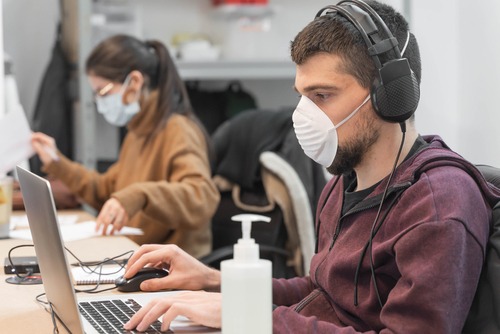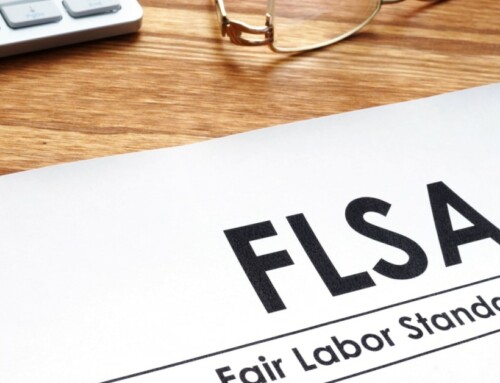As South Carolina Governor Henry McMaster continues to ease restrictions on businesses forced to close due to the novel coronavirus (COVID-19) pandemic, more and more companies are beginning the gradual process of reopening. However, as most business owners are keenly aware, reopening while the virus is yet to be contained presents several risks in health and liability. If you are considering reopening your business, what do you need to know? Here are some important considerations from our South Carolina employment lawyers:
1. The Fact that Companies Can Open Does Not Necessarily Mean That They Should Open
Although many business owners are understandably very anxious to reopen, the decision to reopen must take all pertinent factors into account. Specifically, if your company has not yet implemented the necessary safeguards to mitigate the risk of COVID-19 exposure for employees and customers, opening prematurely will likely be inadvisable. While businesses that are now permitted to reopen have no reason not to begin working toward reopening as soon as possible, in doing so, they must follow a systematic plan that is based upon the latest guidance that is available.
2. If a Company Chooses to Open, It Must Abide by the Restrictions that Remain in Place
When reopening, South Carolina businesses must also ensure that they are doing so in compliance with the restrictions that remain in place. For example, restaurants seeking to add outdoor seating must obtain all necessary licenses and permits, and non-essential, close-contact businesses must comply with Governor McMaster’s May 15, 2020, Executive Order, which states:
“Any businesses, venues, facilities, services, and activities that elect to re-open to non-employees and for access or use by the public . . . should consider and incorporate any corresponding industry guidelines regarding the same, in addition to undertaking and implementing all reasonable steps to comply with any applicable sanitation guidance promulgated by the CDC, DHEC, or any other state or federal public health officials.”
3. Companies Can Lawfully Screen Their Employees for COVID-19, But They Must Do So Carefully
It makes sense to screen employees for COVID-19. Still, many employers may not realize that this type of screening can implicate employees’ rights under the Americans with Disabilities Act (ADA) and other state and federal anti-discrimination laws. To address this concern, the U.S. Equal Employment Opportunity Commission (EEOC) has guided how employers can screen employees without violating their rights under the ADA and other pertinent statutes.
For example, on a webpage titled, What You Should Know About the ADA, the Rehabilitation Act, and the Coronavirus, the EEOC writes: “The ADA and Rehabilitation Act rules continue to apply, but they do not interfere with or prevent employers from following the guidelines and suggestions made by the CDC about steps employers should take regarding the Coronavirus.” Importantly, however, in addition to following EEOC and CDC guidance, employers should seek legal advice that is custom-tailored to their proposed screening protocols as well.
4. Companies Should Also Carefully Consider Their Insurance Needs
When it comes to preparing to reopen from COVID-19, employers must also carefully assess whether their current insurance policies are adequate despite the unique risks presented. This includes the risks of employment-related litigation, as well as the risk of client and customer claims and whistleblower allegations. While securing additional coverage may prove challenging, for employers whose coverage is lacking, it will likely be well worth the effort to conduct a thorough risk assessment and work with their legal counsel to negotiate additional coverage.
5. It May Be Prudent to Continue to Allow Remote Working to the Extent Possible
In addition to conducting COVID-19 screening, there are various other steps employers can take to mitigate the risk of employees bringing the virus into the workplace. Additionally, to the extent that employers undertook efforts to establish remote working capabilities, it may make sense to continue to allow employees to work from home for the time being. That said, employers must adequately balance all pertinent legal and business factors. At some point, it will likely make sense to begin transitioning back to an office-based work environment for those employees that were normally coming to the office.
6. PPP Loan Recipients Must Maintain Compliance to Preserve Their Forgiveness Eligibility
For employers that received Paycheck Protection Program (PPP) loans, reopening will also necessitate a careful review of their compliance with the PPP’s forgiveness eligibility requirements. Employers must carefully document their use of PPP funds, and they must ensure that their “necessity” certifications are valid and compliant.
In addition to preserving their forgiveness eligibility, employers must also be prepared for the possibility of an SBA audit. Treasury Secretary Steven Mnuchin recently announced that the SBA would be auditing all employers that received PPP loans of $2 million or greater and auditing smaller loan recipients on a case-by-case basis.
7. Resources are available from South Carolina, the CDC, and Other Sources
Finally, when preparing to reopen, South Carolina employers should rely on the available government resources. As mentioned above, the EEOC and CDC have published resources for employers, as has the South Carolina Department of Commerce through the accelerated program. Once again, however, employers should not rely on these resources exclusively, and they must tailor their safety and compliance protocols to their specific business needs.
This list is by no means exhaustive. From the Family and Medical Leave Act (FMLA) and Families First Coronavirus Response Act (FFCRA) compliance to implementing safety protocols to protect clients and customers, employers in South Carolina have numerous issues to consider as they plan to reopen from COVID-19. If you have questions about protecting your employees, clients, customers, and your company, we encourage you to contact us for a confidential consultation.
Speak with a Columbia, SC Employment Lawyer at Gignilliat, Savitz & Bettis, LLP
Based in Columbia, our firm represents employers throughout South Carolina in compliance and defense matters. If you would like to speak with an employment lawyer about the steps involved in reopening your business from COVID-19, we invite you to call 803-799-9311 or contact us online to schedule a confidential consultation.






